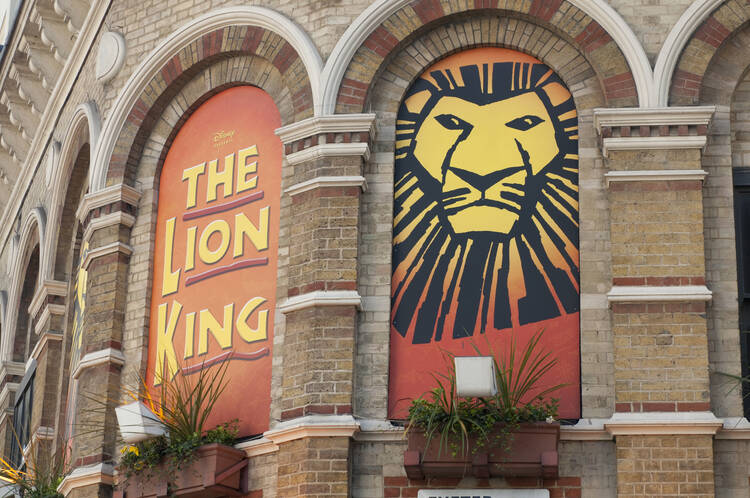Blockbuster Month continues into the Nineties with Roger Allers and Rob Minkoff’s “The Lion King” (1994).
The highest-grossing traditionally animated film of all time (and, briefly, the second-highest-grossing film of all time), “The Lion King” follows lion cub Simba (Jonathan Taylor Thomas; Matthew Broderick), the crown prince of an African savannah kingdom of talking animals. Despite the guidance of his father, King Mufasa (James Earl Jones), Simba is callow and impulsive. This changes when his uncle, Scar (Jeremy Irons), murders Mufasa and makes Simba believe it’s his fault. Fleeing into self-imposed exile, Simba tries to forget his past. But with help from friends new and old, he finds the courage to return home and take his place as king.
I loved “The Lion King” as a kid. But for millennials like me, Mufasa’s death was also a sort of formative trauma—what the death of Bambi’s mother was for previous generations. Along with squashed spiders and belly-up goldfish, it was one of the first times I had to reckon with the finality of death. Plenty of Disney films featured dead parents, of course, but they always died off-screen; you never mourn Cinderella’s parents because you never meet them. We get to know Mufasa, see his love for Simba, hear his wisdom. When he dies, we feel a real sense of loss.
As the film’s opening song tells us, life is a circle. We are born, we live, we die; our story ends, and others go on.
That’s a lot to handle as a kid, but it’s in service of an important lesson: Death is part of the great, interconnected story of life. As the film’s opening song tells us, life is a circle. We are born, we live, we die; our story ends, and others go on. The circle keeps turning. Critically, we all ride this circle together. Our learning, growing and, yes, our dying are wrapped up in each other.
Mufasa tries to impart this lesson to Simba, and the younger lion spends the entire movie learning it. There’s an extra layer of responsibility for him, as someone preparing for a position of leadership, but it’s true for all of us. Simply being alive entrusts us with a certain amount of responsibility. We are bound to one another, and the living world around us.
The film’s villains oppose this theme, of course: the hyenas (all hunger with no sense of balance) and Scar (who craves the power of leadership, but has no interest in its responsibilities). But even Simba’s friends Timon (Nathan Lane) and Pumbaa (Ernie Sabella) and their motto of “Hakuna Matata” (“No Worries”) miss the mark. It would be easier to not care about anything. But that would also mean not caring about anyone. Relationships necessitate responsibility and the pain that comes with vulnerability. Choosing not to worry means choosing not to be fully alive. (It’s ironic, or maybe telling, that “Hakuna Matata” is so prominent on “Lion King”merchandise.)
Accepting the reality of loss is part of being alive, too. Death will, eventually, separate us from everyone we love. But even this isn’t the end: Indeed, we believe that death is necessary to usher us into new life.
When Mufasa's spirit tells Simba to "remember who you are," it's more than a reminder about his place in the line of succession. It's an echo of the formula we hear on Ash Wednesday: "Remember you are dust, and to dust you shall return." Simba needs to remember that he is part of a cycle that includes death and loss, but also new life. Death is an ending, but it’s not the end. The circle keeps turning.
“The Lion King” is streaming on Disney+, and available to rent or buy on Apple TV+ and Google Play.








